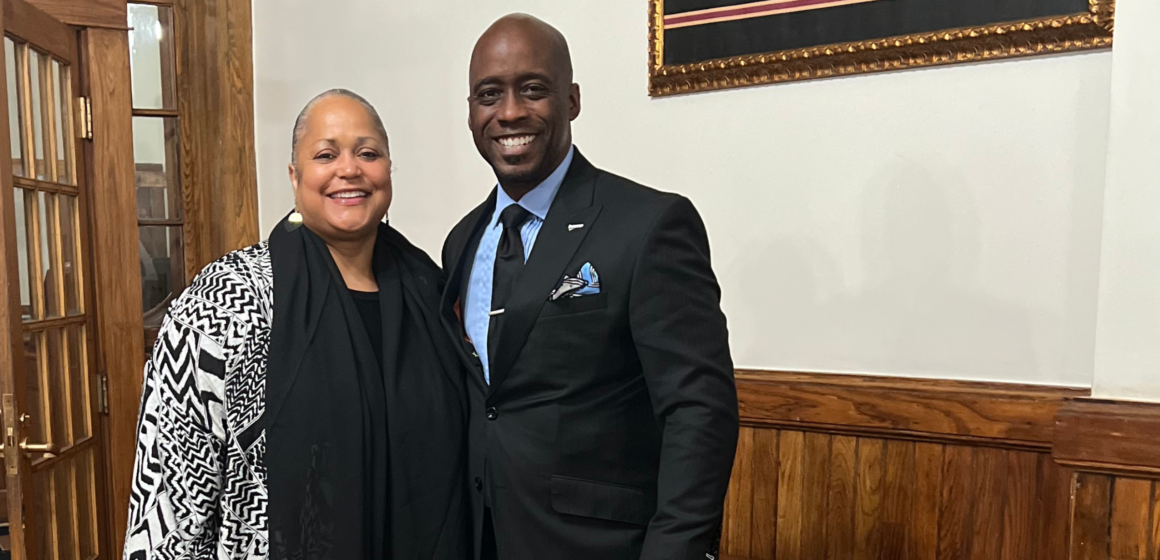By: Editorial Team, inCity Magazine
In a society often accused of adopting tech lingo with abandon, “disruptive” emerges as a term both feared and revered. Yet in the context of judicial offices, we rarely hear it. Meet Vickie Gipson, the newly appointed Chief Judge of the Anne Arundel County Orphans’ Court. Here is a person disrupting not just the status quo, but also smashing through centuries of monolithic representation.
Let’s start by reshaping your perception of the Orphans’ Court. No, it doesn’t deal with orphans or adoptions. It’s essentially the Probate Court of Maryland, responsible for handling wills, estates, and some limited matters. Picture it as the lesser-known custodian of generational wealth, the architect of legacy management.
In her opinion article, Gipson refers to the court as an “odd egg,” and she is not wrong. This judicial body walks the tightrope between tradition and modernity. Until 2022, Anne Arundel County’s Orphans’ Court was like the hipster of the judicial system, deliberately avoiding modern technology. It’s about time that someone injected a fresh dose of innovation into these halls of law.
Firstly, Gipson’s appointment is groundbreaking. She is the first African American Chief Judge in the court’s 246-year history. That’s not just a career milestone; it’s a seismic shift in institutional representation. In an era where diversity and inclusion often remain buzzwords, Gipson’s presence sends a potent signal that these ideals can be transformed into tangible action.
Her appointment isn’t just about diversity; it’s about expanding the scope of the court’s vision. Don’t view this appointment as a checked box on a diversity form but as an expansion pack to the court’s base software. Gipson is rebooting the system to represent all of Maryland, not just the historically privileged.
But what really sets Gipson apart is her focus on proactive outreach and accessibility. In her published article, she highlights the court’s transformation towards improved ADA accessibility and mediation programs. Not just a seat-filler, Gipson aims to be an actionable leader who gets things done.
She’s embracing technology not just as a gimmick but as a tool to reach out to a broader demographic. In a world where you can order a cheeseburger through an app, why should the law lag behind? With Gipson at the helm, don’t be surprised if Orphans’ Court starts to adopt cutting-edge digital solutions to make judicial processes more transparent and efficient.
It’s this very focus on technology that can make the transfer of generational wealth less daunting and more democratic. Imagine streamlining the complex process of will-writing and asset management via an app or an online platform. This will benefit not just the privileged few but potentially every Maryland resident.
Moreover, Gipson’s vision for the Orphans’ Court ties into the broader theme of generational wealth. As she eloquently states, “upon your death, the transference of wealth is a privilege, not a right.” In a society where economic disparities loom large, making the process of wealth transference transparent and accessible can literally transform lives and empower communities.
For all her path-breaking qualities, Gipson retains a sense of gratitude, thanking not just Governor Wes Moore for the appointment but also the people who supported her journey. It’s a touch of grace that complements her disruptive vision, offering a balanced model of leadership we can all admire.
Vickie Gipson is more than a judge; she is an innovator and disruptor. This isn’t your grandparent’s Orphans’ Court; it’s a reimagined, rebooted space geared to serve 21st-century Marylanders. With Gipson leading the way, one can’t help but feel a sense of anticipation. It’s almost like waiting for the next big software update, except this one doesn’t just upgrade your device; it upgrades your community and potentially your future.


